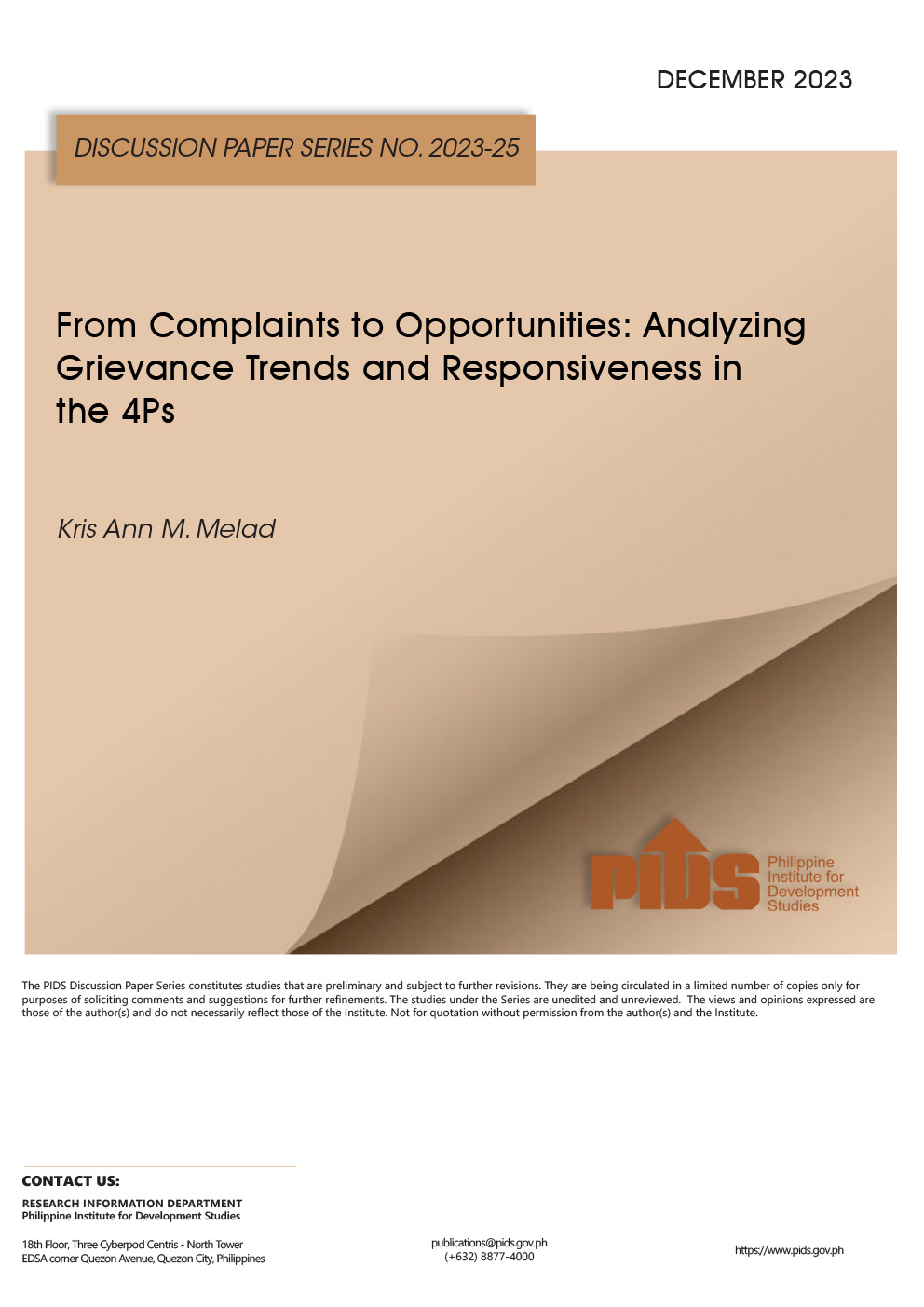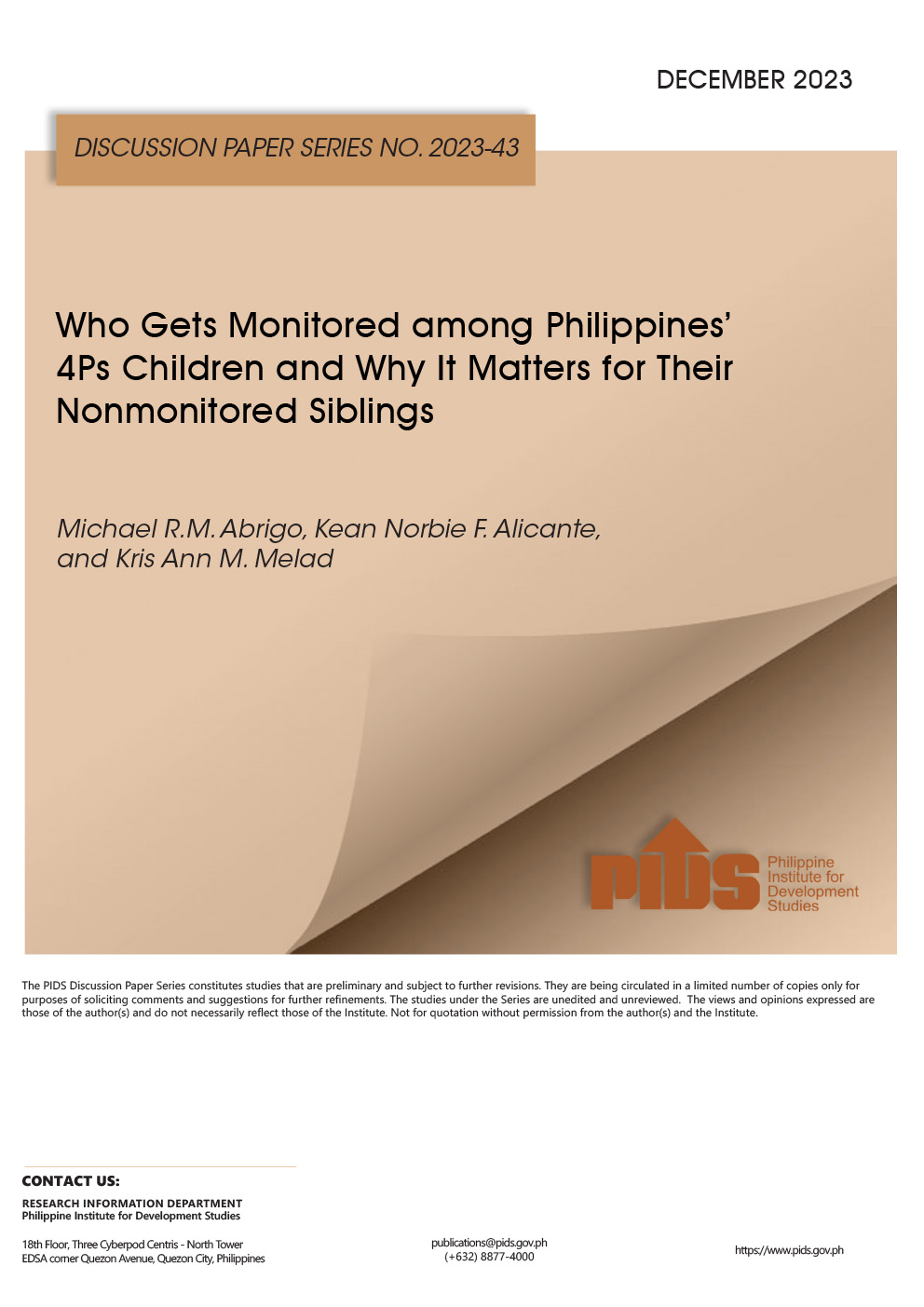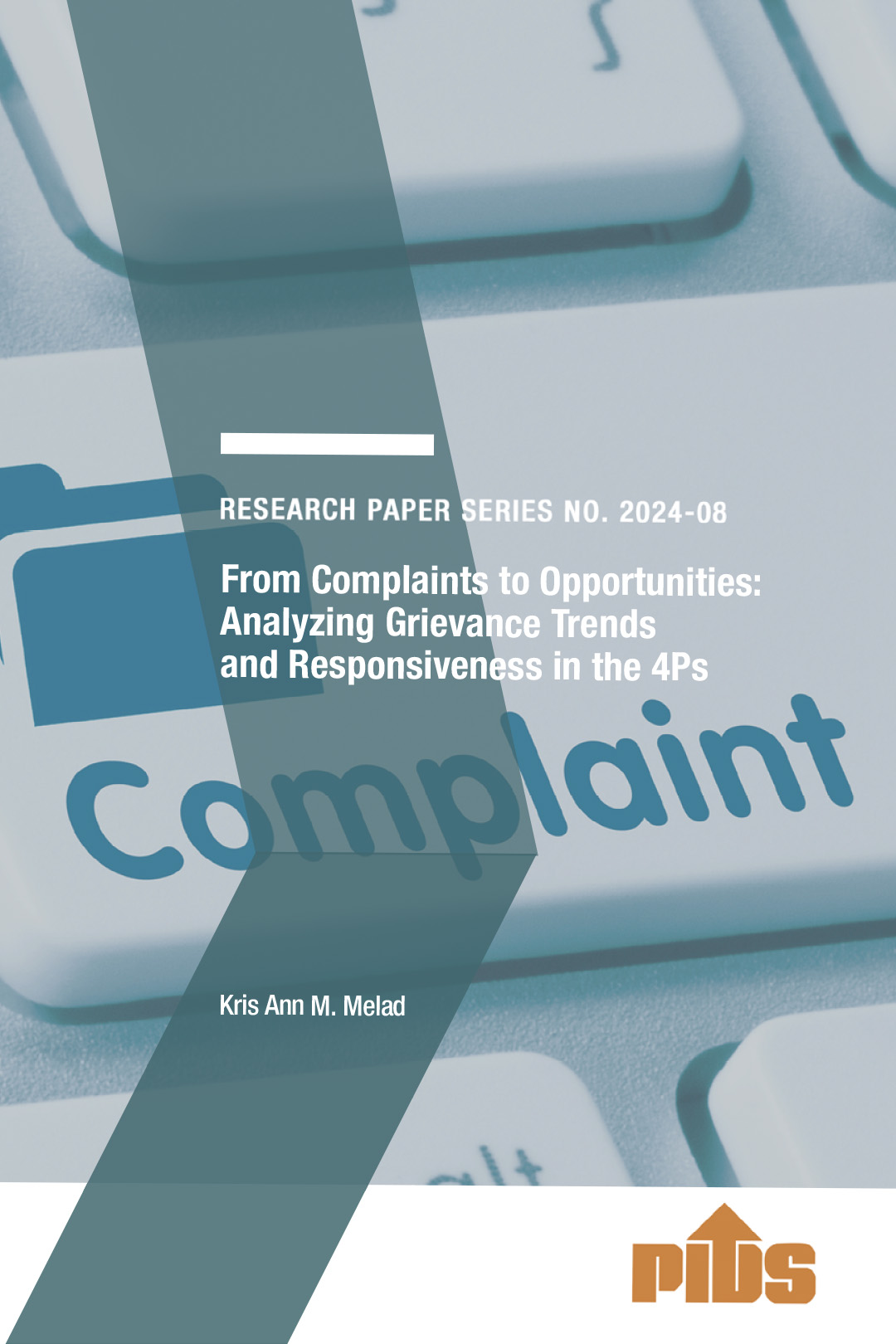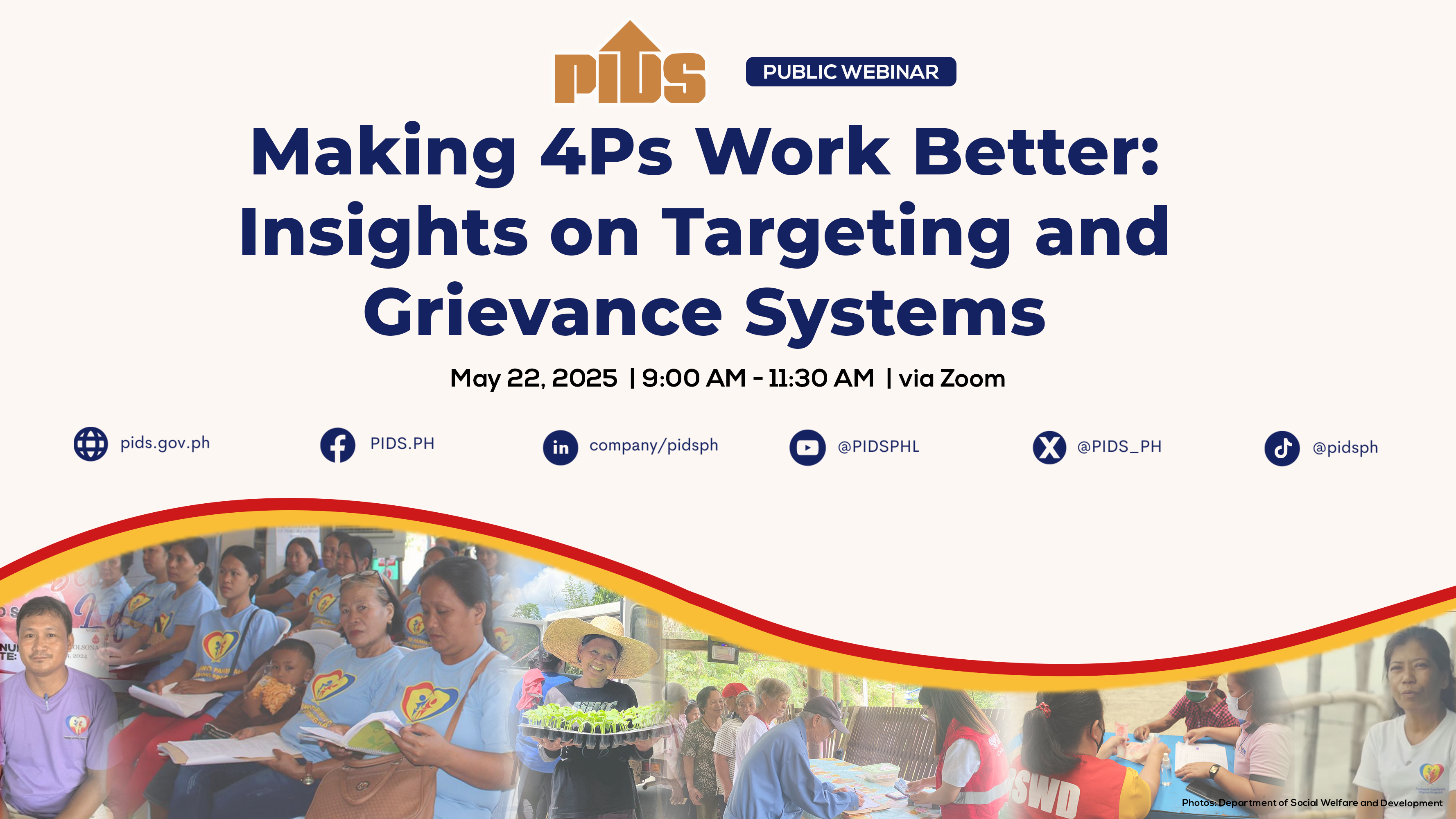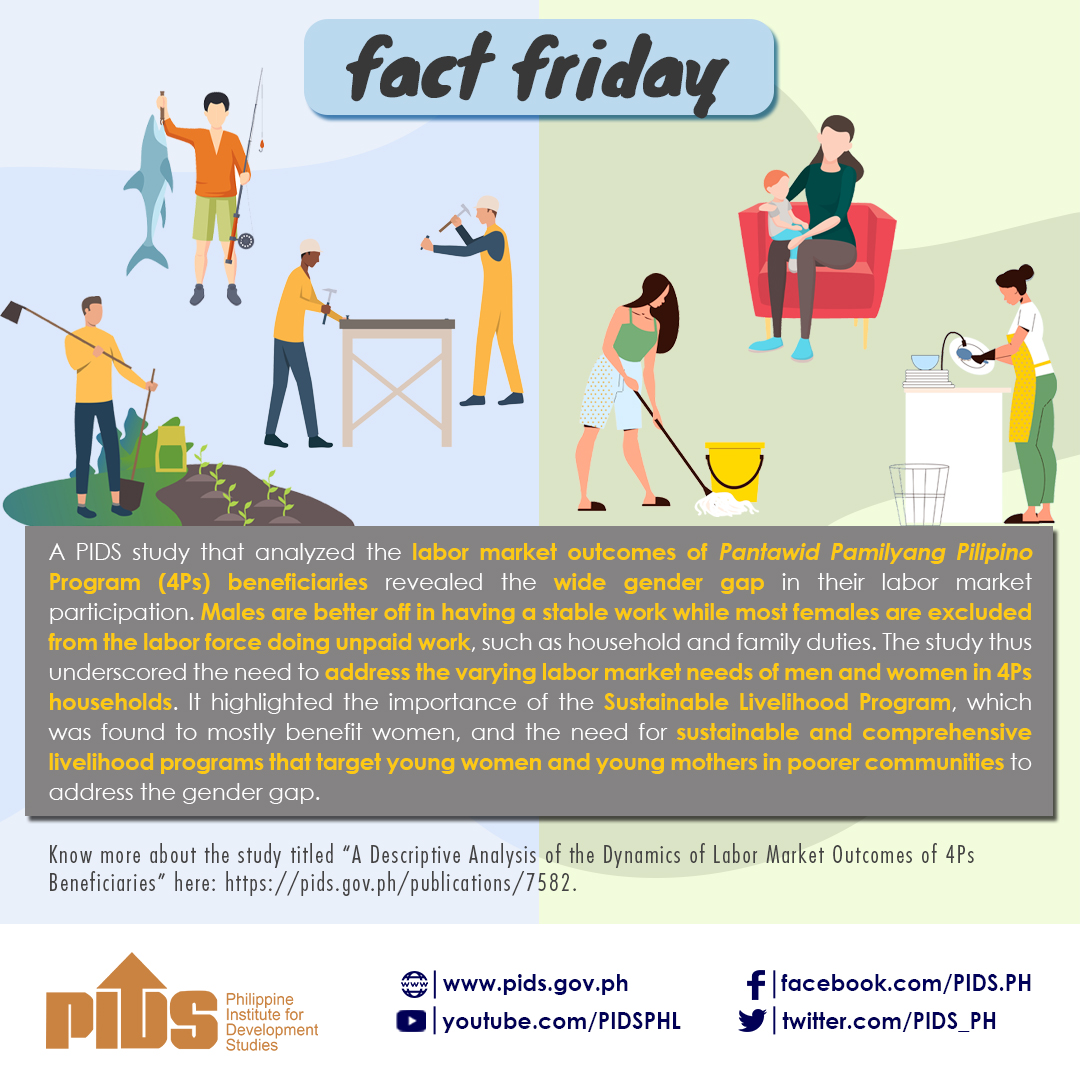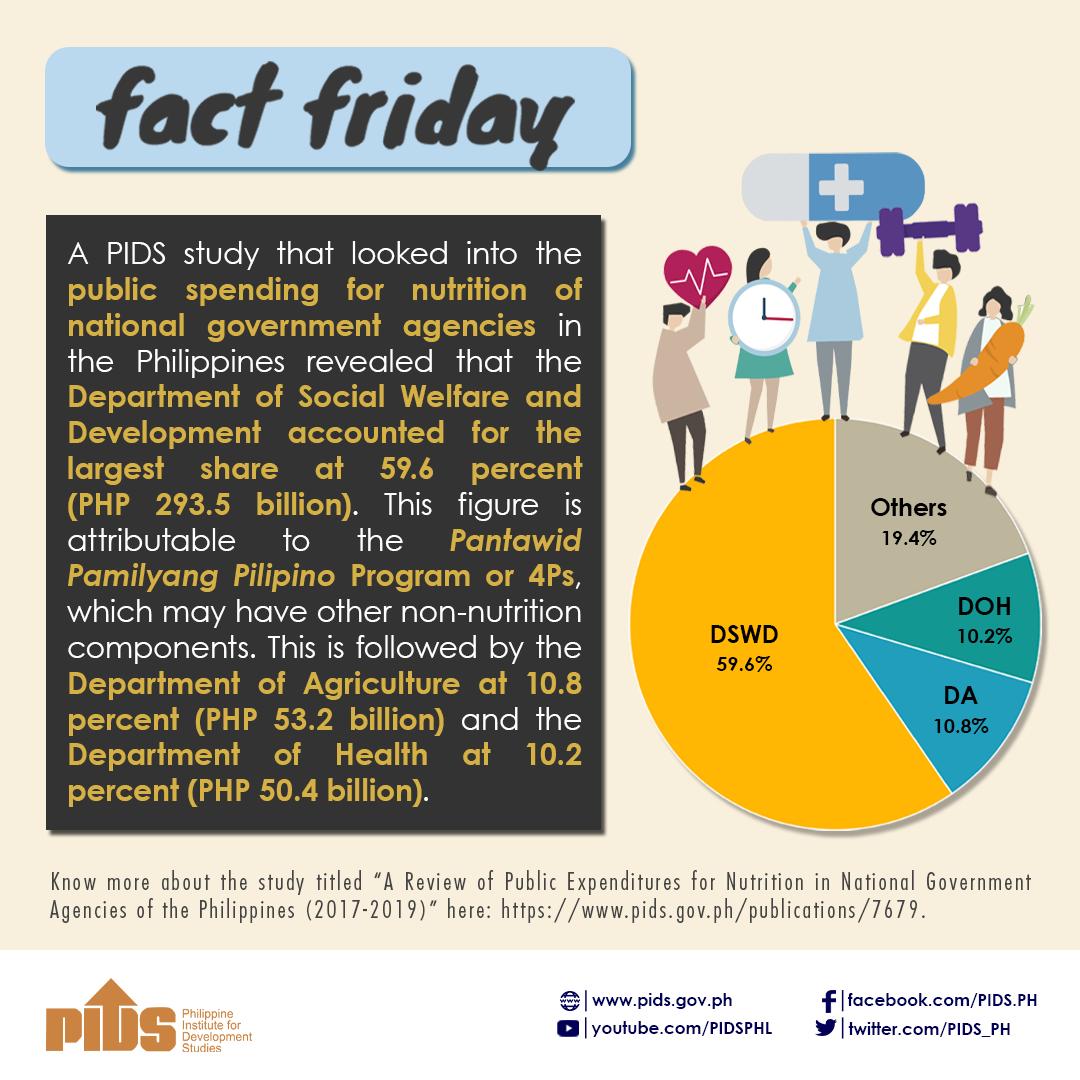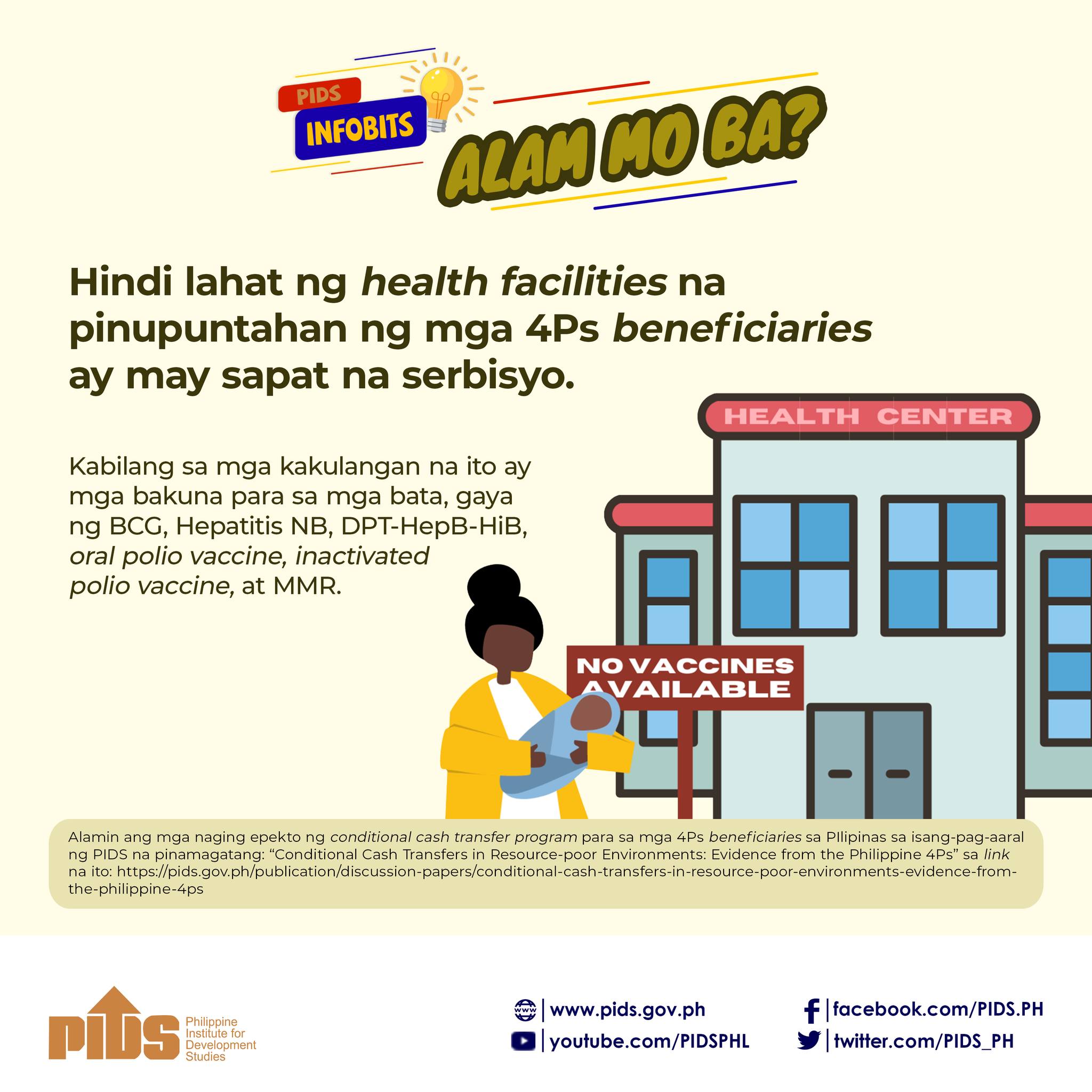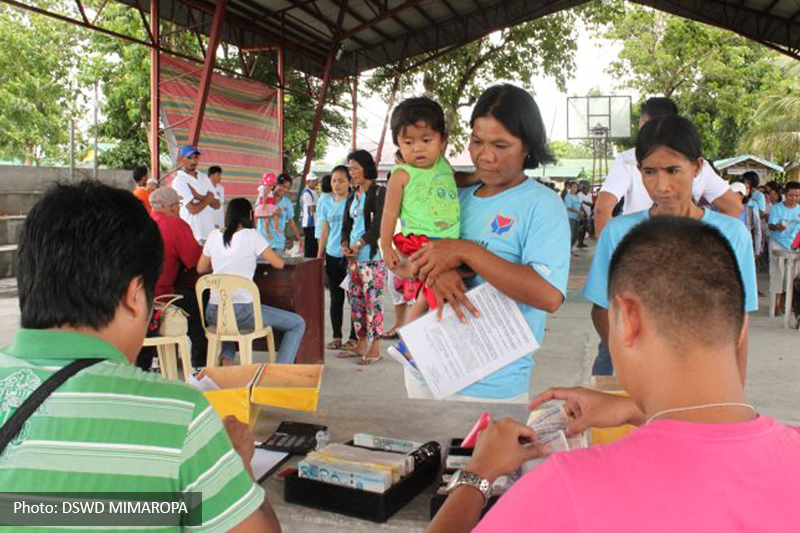
A study of state think tank Philippine Institute for Development Studies (PIDS) recommends the automatic adjustment of cash assistance for Pantawid Pamilyang Pilipino Program (4Ps) beneficiaries.
Authors PIDS Senior Research Fellow Aniceto Orbeta, PIDS Supervising Specialist Kris Ann Melad, and PIDS Research Analyst Nina Victoria Araos stressed the need to “establish a principle for adjusting the grant amount” ahead of the six-year review period stipulated under Republic Act 11031 or the 4Ps Act.
According to the authors, this is important considering that the country will be entering a post-COVID recovery phase.
Under the new law, program beneficiaries are given a monthly health subsidy of PHP 750 and educational assistance of PHP 700, PHP 500, and PHP 300 for students in senior high school, junior high school, and elementary school, respectively. This is in addition to their monthly rice subsidy of PHP 600.
The results of the study showed that the “amount of cash grants has remained at their nominal levels starting 2008 up to 2016.”
“The reduction in [the] real value of the grants has reduced its ability to augment the income of the beneficiaries and aid human capital investment of children,” the study explained.
In addition to the grant's automatic adjustment, the PIDS study also urged the government to consider differentiating the amount of assistance for specific target beneficiaries (e.g., by gender or location).
The research paper also suggested that if the grant cannot be adjusted proactively, supplementary interventions, such as other programs and cash assistance, should be provided to 4Ps beneficiaries.
It also emphasized the importance of distributing payouts to recipients according to a specified or fixed schedule and reducing barriers in accessing the grant. To implement this, improvements should be made in the processes and IT infrastructures of the Department of Social Welfare and Development and the Landbank of the Philippines (LBP), an Authorized Government Depository Bank (AGDB) of the program.
Another recommendation of the study is for LBP and other relevant AGDB to expand their network of automated teller machines (ATM) and local bank branches all over the country. The LBP should also find alternative cash withdrawal points such as point-of-sale (POS) transactions/withdrawal services to cover areas without ATMs. Moreover, POS establishments should be monitored, and transaction fees should not be shouldered by the beneficiaries (at least for the first withdrawal) regardless of where the transaction was done.
The study further suggested streamlining the processes related to resolving grievances about payment and cash cards. ###
This article is based on the discussion paper titled “Giving Cash to the Poor A Study of Pantawid Pamilya Cash Grants Generosity, Frequency, and Modality”.
Authors PIDS Senior Research Fellow Aniceto Orbeta, PIDS Supervising Specialist Kris Ann Melad, and PIDS Research Analyst Nina Victoria Araos stressed the need to “establish a principle for adjusting the grant amount” ahead of the six-year review period stipulated under Republic Act 11031 or the 4Ps Act.
According to the authors, this is important considering that the country will be entering a post-COVID recovery phase.
Under the new law, program beneficiaries are given a monthly health subsidy of PHP 750 and educational assistance of PHP 700, PHP 500, and PHP 300 for students in senior high school, junior high school, and elementary school, respectively. This is in addition to their monthly rice subsidy of PHP 600.
The results of the study showed that the “amount of cash grants has remained at their nominal levels starting 2008 up to 2016.”
“The reduction in [the] real value of the grants has reduced its ability to augment the income of the beneficiaries and aid human capital investment of children,” the study explained.
In addition to the grant's automatic adjustment, the PIDS study also urged the government to consider differentiating the amount of assistance for specific target beneficiaries (e.g., by gender or location).
The research paper also suggested that if the grant cannot be adjusted proactively, supplementary interventions, such as other programs and cash assistance, should be provided to 4Ps beneficiaries.
It also emphasized the importance of distributing payouts to recipients according to a specified or fixed schedule and reducing barriers in accessing the grant. To implement this, improvements should be made in the processes and IT infrastructures of the Department of Social Welfare and Development and the Landbank of the Philippines (LBP), an Authorized Government Depository Bank (AGDB) of the program.
Another recommendation of the study is for LBP and other relevant AGDB to expand their network of automated teller machines (ATM) and local bank branches all over the country. The LBP should also find alternative cash withdrawal points such as point-of-sale (POS) transactions/withdrawal services to cover areas without ATMs. Moreover, POS establishments should be monitored, and transaction fees should not be shouldered by the beneficiaries (at least for the first withdrawal) regardless of where the transaction was done.
The study further suggested streamlining the processes related to resolving grievances about payment and cash cards. ###
This article is based on the discussion paper titled “Giving Cash to the Poor A Study of Pantawid Pamilya Cash Grants Generosity, Frequency, and Modality”.

